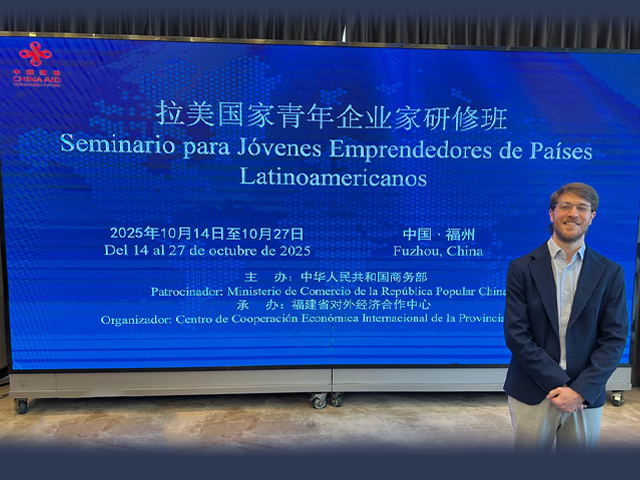If you are planning to establish or solve Labor Relations in Uruguay, you will need to ensure the correct application of Uruguayan labor legislation. This will involve securing the services of an attorney you trust.
The work carried out by the professionals of Carlos Picos Consultora in the discipline of Labor Law has led our firm to acquire extensive experience in advising local and international clients who come to invest in Uruguay.
Make your legal consultation at no cost with one of our experts in Labor Law.
The Labor Law Services of Carlos Picos Consultora include all aspects related to Labor Law, including:
- Advice and representation in preliminary or transactional hearings in the Ministry of Labor and Social Security.
- Representation in individual claims before the Labor Court or second instances in the higher courts:
- Layoffs on a daily or monthly basis;
- Claims in sanctions in the worker’s file;
- Differences in the calculation of items, whether salaries, licenses, commissions, etc.
- Advice and drafting of judicial or extrajudicial transactional agreements.
- Labor audits and “labor checking”.
- Labor hiring.
- Outsourcing and outsourcing contracts and processes.
- Salary settlement. We carry out salary settlements for both employees and employers.
- Immigration services: obtaining the provisional identity card, temporary and permanent residence, citizenship card, homologation of titles and related procedures.
What is the standard working day according to Labor Law in Uruguay?
According to Uruguayan labor legislation, the working week schedule is 8 hours per day and 44 hours per week. For industrial establishments, the same daily limit applies, increasing the weekly maximum to 48 hours. All employees must have at least one day off per week. For commercial establishments, it can be agreed not to work on Saturdays, redistributing the four hours of work in the week (from Monday to Friday). The hours of work that are carried out over the maximum duration of the working day established for the type of activity, will be considered overtime.
How are overtime calculated?
Overtime will be paid with a 100% (one hundred percent) surcharge on the value of the simple hour, when performed on business days.
If the extension of the working day is carried out on a day on which, according to the law, due to being a holiday or taking weekly rest, work is not carried out, the surcharge will be 150% of the hourly value of the working days.
The worker is not required to work overtime, so the company cannot force him to work it.
Is there legislation for Teleworking in Uruguay?
Yes. The Teleworking Law reflects “the right to disconnection in all its extension”. Teleworking is defined as the provision of work, in whole or in part, using information and communication technologies outside the physical environment provided by the employer, whether interactive or not.
What are the usual types of contracts in Uruguayan Labor Law?
The employment contract in Uruguay can be verbal and it is not mandatory that it be in writing. However, the main written contracts are the following:
- Trial contracts, this allows the employer to make sure that the contracted worker has the required professional qualification and, to the worker, check the characteristics of the tasks and the work environment where he will perform. This type of contract cannot exceed 3 months.
- Employment contracts without term. They are the most common employment contracts. Its termination proceeds when the employee and the employer reach a mutual agreement or by the will of one of the parties.
- Employment contracts with term. A defined duration is established by contract. It is generally used for periods of up to one year.
- Contracts for specific tasks or projects. Contracts with an indefinite term are considered. Obligations arise in relation to the completion date of the task or project that is the subject of the contract.
How are salaries established in Uruguay?
There is a national minimum wage set by the authorities. There are also salary agreements by branch of activity.
How are salaries paid in Uruguay?
Employees with a monthly salary must receive their salary between the 5th and 10th of the following month. Day laborers must receive their salary at the expiration of the week.
There are no currency restrictions, for example payment can be established in Uruguayan pesos or US dollars.
What is established in relation to the Holidays in Uruguay?
The holiday is a day expressly provided for in the Law, in which work is generally not done to commemorate a holiday, whether it is for some patriotic, religious event or some event of global repercussion.
In Uruguay, non-working holidays are January 1, May 1, July 18, August 25 and December 25.
The working holidays are January 6, April 19, May 18, June 19, October 12 and November 2. To these dates are added two days in the week of Carnival (Monday and Tuesday) and two days of Holy Week (Thursday and Friday).
How is a monthly worker’s leave calculated?
The statutory annual license is 20 days. If the worker, as of December 31, did not work every month of the year, the number of days of leave will be obtained by multiplying the months worked by 1.66. There are special leaves: maternity, paternity, adoption, marriage, bereavement, study, etc.
How is vacation pay calculated?
100% of the liquid amount that the worker receives for leave or vacations and must be paid prior to the beginning of the leave. 20 days of leave = 20 days of vacation pay
What is the bonus?
The Aguinaldo is a complementary annual salary. It is understood as one twelfth of the total wages paid in cash by the employer in the twelve months prior to December 1 of each year. It is paid in two parts June and December.
How is severance pay calculated in Uruguayan Labor Law?
When the breach of the employment contract is caused by the employer, the employer must pay the worker severance pay. There are no formalities, nor is there a need for advance notice. For the monthly worker, the payment of a salary per year or fraction worked is calculated, maximum six.
The rate of the remaining salary items (overtime, breaks worked, bonus leave, etc.) is included in the concept of salary.
There are compensations for special dismissals in the following cases:
- Dismissal of the sick worker.
- Dismissal of a pregnant worker or one who has given birth.
- Dismissal of an employee who has suffered a work accident or professional illness.
- Abusive dismissal.
Uruguayan Labor Legislation establishes dismissal for notorious misconduct.
These are cases in which the employee’s conduct leads to the employer being able to fire the worker without having to pay severance pay.
In case of litigation, it will be the Judge who will definitively establish whether or not the notorious misconduct has been configured, and the consequent compensation or not.
When do labor credits prescribe in Uruguay?
There is a period of one year from the termination of the employment relationship to file an action claiming labor concepts.
Who is competent to deal with labor matters in Uruguay?
They are competent to deal with labor matters, the Labor Law Courts.
There are different types of procedures depending on the amount claimed:
- Abbreviated procedure
- Ordinary procedure
How are the mandatory contributions according to the labor legislation in Uruguay?
Employee withholdings range between 18.125% and 23.125% of employee salaries.
This is a 15% deduction for retirement contribution. Likewise, there is a deduction of between 3% and 8% allocated to the national health fund FONASA, the percentages vary depending on the salary and family responsibilities of the employee (spouse, common-law partner and/or children). Lastly, a deduction of 0.10% is applied for the government fund for job reconversion.
Withholdings for employers amount to 7.5% for retirement contribution. 5% for FONASA and 0.125% for the labor reconversion fund.
You can make a free consultation by videoconference with one of our specialists in labor law.



